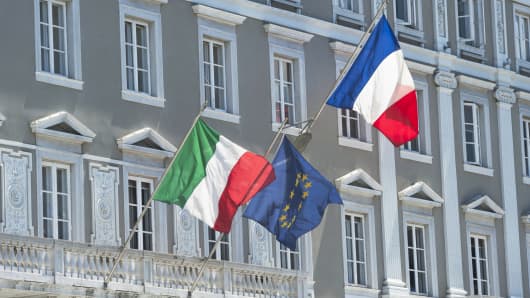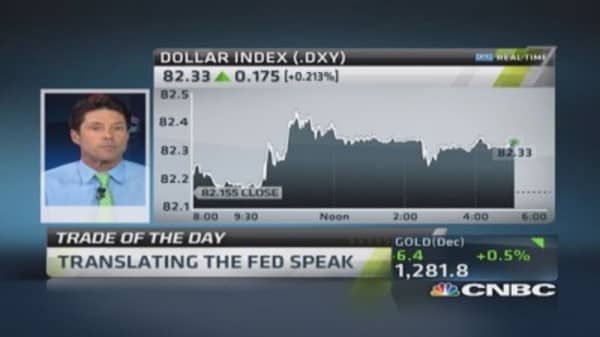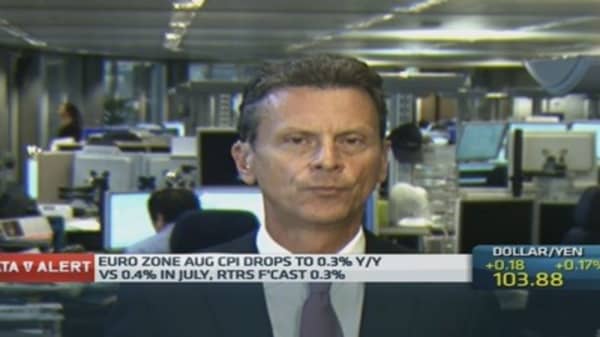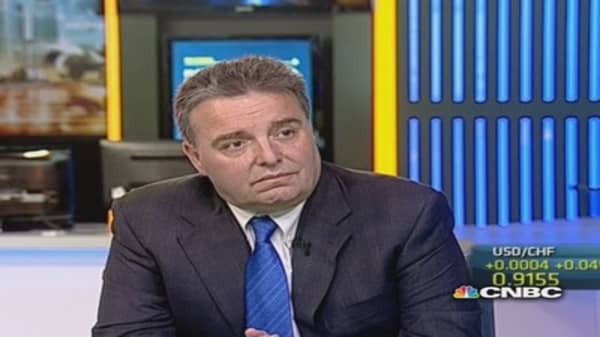France is having a problem of an unpopular government and serious deficit slippages. After a budget deficit of 4.3 percent of GDP last year, a similar deficit is expected this year, with no chance at all of bringing the deficit down to a promised 3 percent of GDP in 2015.
There is a big credibility problem here. And, unlike Italy, France is running cyclically-adjusted budget deficits of nearly 3 percent of GDP, with a primary budget deficit (excluding interest payments on public debt) of 1 percent of GDP. Also, France's public debt of 113 percent of GDP has risen sharply over the last three years.
Investment thoughts
France and Italy face tough political decisions. Tax cuts and reforms needed to support their economic growth will require deep and sustained declines in public spending and rising revenues from public asset sales. Nothing else will do.
Some help may come from public investment programs at the EU level (presumably a fund of about €300 billion), but the timing and the effectiveness of that spending is open to question.
The ECB has virtually exhausted its stimulus measures. It could still help "growth-oriented fiscal policies" by providing some backstop, within its mandate, to public funding programs. But Germany will make sure that the interpretation of the mandate remains as narrow as possible. Otherwise, Berlin will sue again.
France and Italy have to do something, though. And Germany has a novel idea. Commenting on the difficult French situation, Chancellor Merkel said last week on a German TV show that economic growth does not require money; it just needs intelligent policies. That got her a furious ad hominem attack from a French parliamentarian.
Read MoreEuropean bank officials weigh QE 'shock and awe'
Maybe Paris and Rome need alchemists and "my way" doers. Sounds impossible? Miracles do happen. "My Way" is a French song "Comme d'habitude," translated and brought to Sinatra's attention by a Canadian composer and singer Paul Anka.
Michael Ivanovitch is president of MSI Global, a New York-based economic research company. He also served as a senior economist at the OECD in Paris, international economist at the Federal Reserve Bank of New York and taught economics at Columbia.
Follow the author on Twitter @msiglobal9







